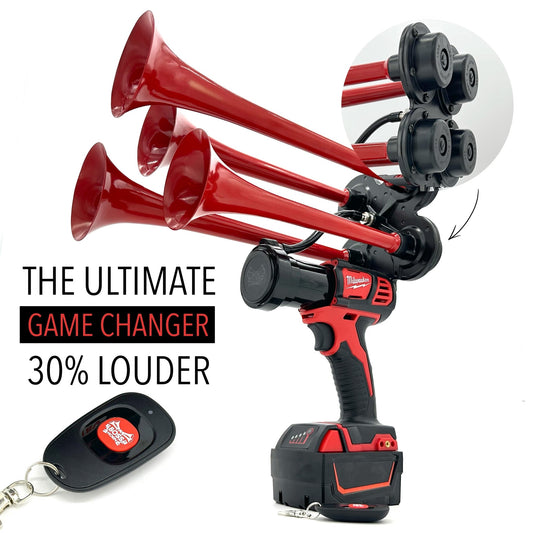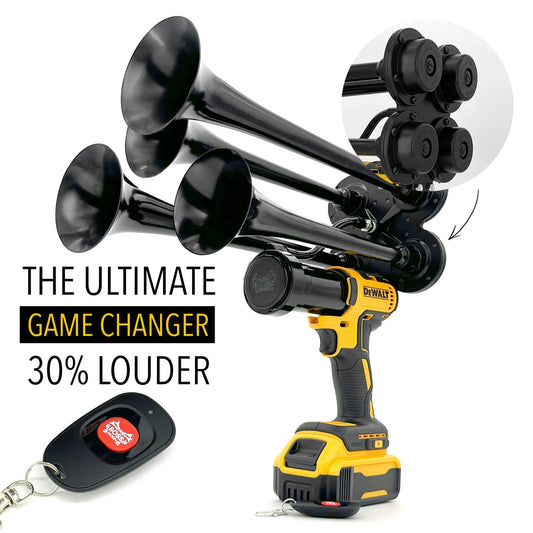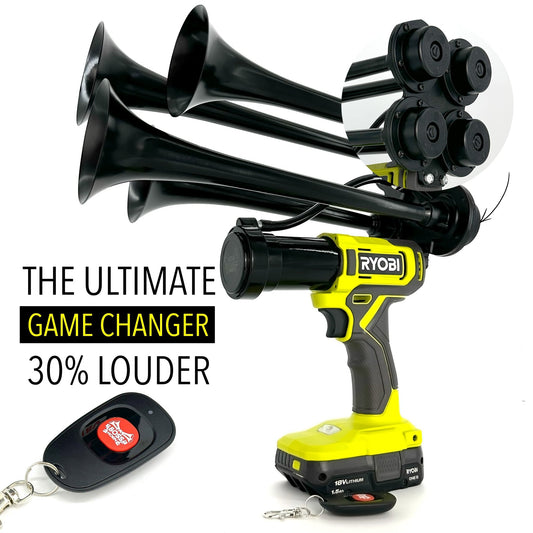Did you know that car horns were first introduced in the early 1900s as a safety feature to alert pedestrians and other drivers of a vehicle's presence? Over the years, car horns have become a standard feature in all vehicles, playing a crucial role in preventing accidents and promoting road safety. However, a common issue that many drivers face is when this essential component fails to function properly.
There are various reasons why a car horn may not work, ranging from electrical issues to mechanical failures. In some cases, a blown fuse or a faulty relay could be the culprit behind the malfunctioning horn. Other times, a problem with the horn button or wiring could be to blame. Regardless of the cause, having a non-functional horn can pose a significant safety concern on the road.
If you find yourself in a situation where your horn is not working, it is crucial to address the issue promptly to ensure the safety of yourself and others on the road. A startling statistic reveals that a large percentage of accidents could have been prevented with the use of a functioning car horn. By taking the necessary steps to repair or replace a faulty horn, drivers can help avoid potentially dangerous situations and communicate effectively with other motorists while driving.
Why is the horn not functioning in your car?
When you are experiencing issues with your car horn, it can be due to a variety of reasons such as a blown fuse, faulty wiring, a malfunctioning horn switch, or a damaged horn itself. To troubleshoot and fix the problem, it is important to understand the components of the horn system in your car and how they work together. In the following sections, we will delve into these common causes of horn failure and provide step-by-step solutions to get your horn working again.
When you find yourself in a situation where the horn in your car is not working, it can be frustrating and potentially dangerous. There are a few common reasons why this issue may occur, and it's important to address it promptly to ensure your safety on the road.
## 1. Electrical Issues
If your car horn is not working, one of the first things to check is the electrical system. A blown fuse or a faulty relay can prevent the horn from sounding. You can test the fuse with a multimeter or simply replace it to see if that resolves the issue. Similarly, a malfunctioning relay may need to be replaced to restore the horn's functionality.
## 2. Faulty Horn
Another common reason for a non-functioning horn is a faulty horn itself. Over time, horns can wear out or become damaged, leading to a loss of sound. Inspect the horn for any visible damage or signs of wear and tear. If necessary, replace the horn with a new one to restore its operation.
## 3. Steering Wheel Components
In some cases, the issue with the horn not working may be related to the components in the steering wheel. The horn button or the clock spring may be damaged or worn out, preventing the horn from activating when pressed. Inspect these components and replace them if necessary to restore the horn's function.
## 4. Wiring Problems
Wiring issues can also cause the horn to stop working. Check the wiring harness for any frayed, damaged, or disconnected wires that may be interrupting the circuit. Repair or replace any faulty wiring to ensure proper electrical flow to the horn.
Remember that a non-functioning horn can compromise your safety on the road, as it is a crucial communication tool to alert others of your presence. If you are unable to diagnose and fix the issue on your own, it is recommended to seek the assistance of a professional mechanic.
Statistics show that approximately 5% of road accidents are caused by horn-related issues, highlighting the importance of addressing this problem promptly. Don't overlook the significance of a working horn in your vehicle's overall safety system.
https://youtube.com/watch?v=AoI8aSZYXVg
Why isn't my car making any sound when I press the button on the steering wheel?
There could be several reasons why your car's horn is not producing any sound when you press the button on the steering wheel.
1. Check the fuse: The fuse for the horn may have blown, causing it to stop working. It's important to inspect the fuse box and replace the blown fuse with one of the same amperage to restore functionality.
2. Examine the wiring: The wiring connecting the horn to the rest of the car's electrical system might be damaged or disconnected. This can prevent the horn from receiving power and producing sound when the button is pressed.
3. Test the horn itself: The horn unit might be faulty and in need of replacement. By testing the horn with a direct connection to the battery, you can determine if it is working properly or if it needs to be replaced.
What should I do if my car's horn suddenly stops working while I'm driving?
If your car's horn stops working while you are driving, it is important to take certain steps to ensure your safety on the road.
1. Stay calm and alert: Keep your focus on the road and maintain awareness of your surroundings, especially in potentially risky situations where you may need to use the horn for safety reasons.
2. Use alternative signals: In the absence of a working horn, utilize other means of communication such as hand signals, flashing lights, or even verbally alerting other drivers or pedestrians to your presence or intentions.
3. Pull over and inspect: When it is safe to do so, pull over to a safe location and conduct a visual inspection of the horn components to identify any visible issues that may be causing the problem.
What are common causes of horn failure in a car?
There are several common reasons why a car's horn may fail to produce sound when the button is pressed.
1. Electrical issues: Problems with the car's electrical system, such as blown fuses, faulty wiring, or a malfunctioning horn relay, can prevent the horn from receiving power and functioning properly.
2. Horn unit failure: Over time, the horn unit itself may wear out or become damaged, leading to a lack of sound production when the button is pressed.
3. Corrosion or dirt buildup: Accumulation of corrosion or dirt on the horn contacts or connections can inhibit the flow of electricity and prevent the horn from working correctly.
How can I troubleshoot and fix a non-working horn in my car?
If you are experiencing issues with your car's horn and would like to troubleshoot and potentially fix the problem yourself, there are several steps you can take.
1. Check the fuse: Begin by inspecting the fuse related to the horn in the fuse box to see if it has blown. If so, replace it with a new fuse of the same amperage to restore functionality.
2. Examine the wiring: Inspect the wiring connecting the horn to the car's electrical system for any signs of damage or disconnection. Repair or replace any damaged wiring to ensure proper connectivity.
3. Test the horn: To determine if the horn itself is faulty, disconnect it from the car's electrical system and test it directly with a connection to the battery. If the horn does not produce sound, it may need to be replaced.
What are the safety implications of a non-working horn in a car?
A non-working horn in a car can have significant safety implications for both the driver and other road users.
1. Reduced communication ability: The horn serves as a vital means of communication on the road, alerting other drivers, pedestrians, and cyclists to your presence or intentions. A non-working horn can hinder your ability to effectively signal and communicate with others.
2. Increased risk of accidents: In emergency situations where quick action is required to avoid a collision or hazard, a non-working horn can lead to delays in signaling and potentially increase the risk of accidents.
3. Legal implications: In many regions, it is a legal requirement for vehicles to be equipped with a functional horn. Driving a car with a non-working horn may result in fines or penalties for non-compliance with safety regulations.
Conclusion
- The horn not working in a car could be due to a variety of reasons, including a blown fuse, faulty relay, or a problem with the horn itself.
- It is important to troubleshoot the issue systematically by checking the fuse, relay, and the horn itself to determine the root cause of the problem.
- Regular maintenance and checking of the horn system can help prevent issues from arising and ensure that the horn is functioning properly when needed.
- If the issue persists even after troubleshooting, it is recommended to seek professional help to diagnose and fix the problem.














